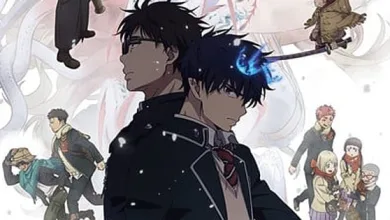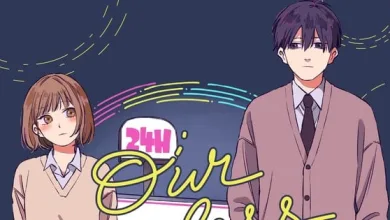A Magical Girl Retires Novel Review – Review

Why is it that magical girls are magical girls? The answer to that question is the theme of award-winning South Korean author Seolyeon Park’s English debut, A Magical Girl Retires. It’s not an attempt to stake out a gender binary in superheroics, although it may sound like that at first – after all, magical boys have accompanied magical girls since at least the 1990s, with Tuxedo Mask, Kaito Sinbad, and, in the manga version of Nurse Angel Ririka, Seiya. More recently, Cure Wing joined the main team in Soaring Sky! Pretty Cure, and a good argument could be made that D.N. Angel is a full-on magical boy story. But most people with transformation sequences and sparkly, marketable items are girls, and Park thinks there’s a specific reason for that: girls and women are much more likely to need a supernatural power to save themselves.
A Magical Girl Retires is set in modern-day Seoul, and it opens with a nameless twenty-nine-year-old woman getting ready to kill herself. She’s in an unenviable but familiar position: drowning in debt, unemployed, and recently orphaned with the death of her beloved grandfather. Copy on other websites makes much of the fact that she’s a Millennial, but the truth is that it’s the sort of horrible position anyone could find themselves in, and Park’s text makes it clear that age is nothing more than a number where any of the characters are concerned. Korea’s first magical girl, who is still practicing, is a grandmother, and Ah Roa herself is likely in her late twenties like the protagonist. The bigger issue for the unnamed narrator is that life has beaten her down, which can happen at any age. So when Ah Roa stops her from jumping from the bridge into the river by telling her that she’s destined to become a magical girl, she’s offering her more than just a way out, indicating that her life is still worth something.
According to Ah Roa, whose power of foresight earned her the moniker of the Magical Girl of Clairvoyance, the protagonist is destined to become the most powerful magical girl of all, the Magical Girl of Time. The other magical girls (who have, of course, unionized) have been awaiting her advent, because climate change can only be halted by someone with the ability to turn back the clock. This really speaks to the narrator because her grandfather was a watchmaker, an ambition she shared for most of her life before things soured. Hearing that she has a tie to time and is needed is enough to convince her not to jump.
This ties back to the idea of why magical girls tend to be female. Ah Roa fulfills a magical girl’s duty by saving the narrator, but later it is mentioned that before a magical girl can save anyone else, she must first be able to save herself. The gift of magic power is given to girls and women primarily because they are more likely to fall through the cracks – in the translator’s note, Anton Hur notes, “When you’re living in Korea like I am, you are constantly fed media reports of violence against women, a phenomenon made even more disconcerting by the lack of consequences for the perpetrators…The most iconic magical girl of all, Sailor Moon, specifically refers to herself as a champion of justice…Magical girls exist because justice does not.” The magical girl union is waiting for the Magical Girl of Time because she can provide world justice, saving humanity from a mess of their own making.
But…what if she doesn’t want to? That feels corollary to the idea of magical girls being granted their powers because they’re in inescapable, untenable situations. We’re used to seeing them rise above their circumstances, but what if they choose not to or cannot? Prétear‘s antagonist is a “failed” magical girl who allows the world to beat her down, and we could view Sailor Moon‘s Sailor Galaxia similarly, so this isn’t a new concept in the genre. But Park’s take on it is more measured because the magical girl we’re following knows more than any other what it feels like to lose all hope. Her position in the story is that of the final savior, but not in the way that the others envision. She has an understanding of the idea that not everyone can be saved, and that’s because she enters the story believing that she cannot be. She is, of course, but the close call and her life experiences shape the way that she ultimately uses her power and the shape that it takes. Her finale isn’t glorious self-sacrifice, like Sailor Moon or Nurse Angel Ririka, but a quiet compromise. It’s her power, and that means that she is the one who can decide how to use it.
Ultimately, like many other classic magical girl works, A Magical Girl Retires is hopeful. It doesn’t pretend that everyone can be saved or the world fixed, but it still acknowledges that magical girls are beacons of hope, if only for themselves. As girls and women, we are socialized to put others before ourselves, and that’s something that Park acknowledges in the story, but the novel asks us to understand that we have to create the justice that we want to see in the world, even if it’s not exactly what everyone wanted us to do. We are all our own nameless heroines.
Source link
#Magical #Girl #Retires #Review #Review



